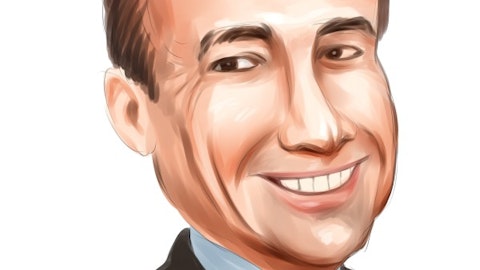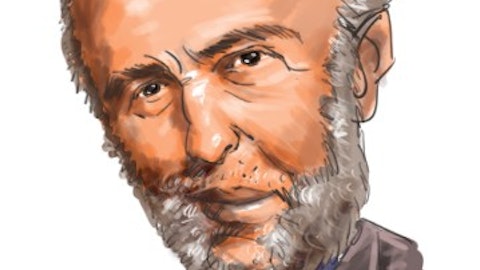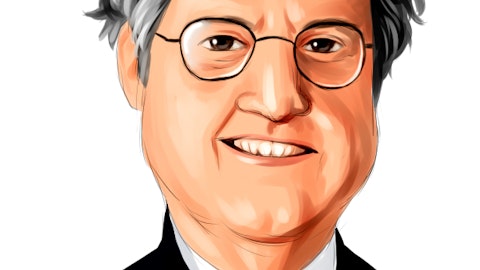
Much as a poker player can take home a tournament with any hand, not just pocket aces, a hedge fund manager too sometimes has to invest in the little-known stocks on the Street, often ones that aren’t covered by that many mainstream analysts. While the billionaires love Apple and Google, there are also some other stocks out there that have performed well over the past year, and are held by the industry’s elite. One such stock is The Cheesecake Factory Incorporated (NASDAQ:CAKE).
Currently held by guys like Griffin, Cohen, Israel Englander and Dmitry Balyasny, the Cheesecake Factory has been a solid investment over the past twelve months, returning a shave over 21%. The Cheesecake Factory’s shares have outpaced the restaurants industry average (6.3%), and peers like Darden Restaurants, Inc. (NYSE:DRI) at 12.7%, Brinker International, Inc. (NYSE:EAT) at 12.3%, and Ruby Tuesday, Inc. (NYSE:RT) at -8.5%. Only DineEquity Inc (NYSE:DIN), which owns Applebee’s and IHOP, has had a better year, making over 40% for its investors. Collectively speaking, the group of hedge fund managers mentioned above holds a significantly larger portion of their capital in the Cheesecake Factory than in DineEquity, so let’s take a look at a few reasons why this might be.
With over 150 signature restaurants in the U.S., and a dozen Grand Lux cafes, the Cheesecake Factory has grown its top line by an average of 3.0% post-recession, which trumps DineEquity (-12.7%) quite significantly. This growth rate is also above Chili’s owner Brinker International (-13.3%) and Ruby Tuesday (2.0%). Darden Restaurants, the operator of Red Lobster and Olive Garden, has generated a slightly better revenue growth at 3.5% a year over this time, but like so many times in life, cheesecake wins in the end.
The Cheesecake Factory has grown its earnings by an average of 26.0% in the past three years — far above Darden (10.6%) — as the company has seen recent increases in profitability via lower than expected produce and dairy costs, in addition to below-average debit card transaction fees and utility costs. Operating margins are at their highest level since 2006, and were up twenty basis points to 7.8% from last year’s total. Of its competitors mentioned here, only DineEquity has seen a similar increase; Darden, Brinker and Ruby Tuesday have seen their operating efficiency fall in the past year.
Despite their gains, shares of the Cheesecake Factory still appear rather cheap at the moment, as they sport a price-to-earnings ratio (17.3X) below the industry average (19.6X), and its own five-year historical average (21.4X). Looking forward, Cheesecake’s forward P/E of 15.4X is attractive, especially compared to the likes of Ruby Tuesday (19.9X). Now, Darden Restaurants (11.8X), Brinker International (11.5X), and DineEquity (14.0X) are all cheaper according to forward P/Es, but it’s important to note that the Cheesecake Factory dominates this trio in terms of earnings estimates, so this differential is to be expected.
On the sell-side, analysts forecast the Cheesecake Factory to grow its EPS by 14.5% a year over the next half-decade, far above Darden, Brinker, and DineEquity, which all are expected to generate annual EPS growth between 11-13% during this time. In fact, when using the PEG ratio, we can see that investors may not be giving the Cheesecake Factory the earnings premium it deserves, as a PEG of 1.20 isn’t overly expensive. If the company can keep beating or meeting the Street’s EPS estimates — it has in each of the last four quarters — there’s more upside to be had here, making it possible for investors to have their cake and eat it too.





